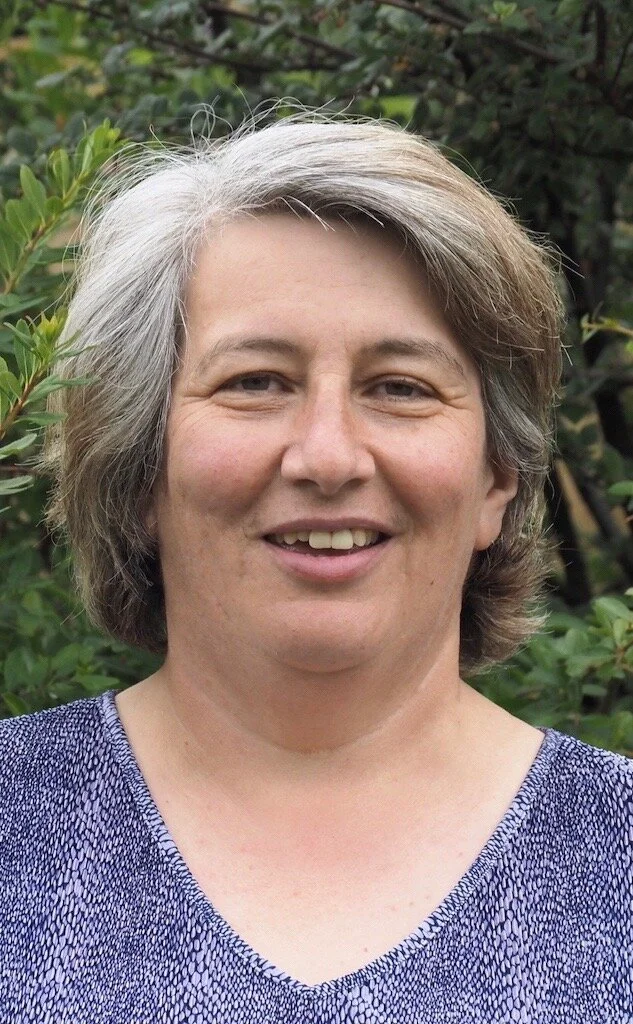Christine Thomas
Christine Thomas, personal photo
Like all the interviews I've done since Covid-19 induced lockdown, this one with Christine was done by social media video link. We almost had tea together as at one point a disembodied arm appeared and provided her with a cup of tea. The arm belonged to her husband!
““ I did ask and so they created things for me … now everybody benefits from them””
So over this cup of tea she told me how she'd progressed from being an undergraduate apprentice with British Aerospace Army Weapons in 1981 to becoming the international Head of Functional Capability and Skills in the Engineering Directorate of MBDA. This is the Franco-British-Italian-German-Spanish company that makes missiles for airborne, naval and ground forces.
When she left school she spent a year at the company and then three years full-time at the University of Salford where she gained her BSc in Electronic Computer Systems “because there was far too much statistics in computer science!” She was one of six girls out of 160 doing that course. But she loved it and “it was a great scheme because I was guaranteed paid work at the company during my holidays, I was already paying into a pension scheme and I was getting a bursary every year.” She was under no obligation to stay in the company after graduation but she did and spent an additional year getting experience in the different departments.
“It was a no brainer for me to do something with maths and science because these are subjects I've always adored, particularly maths,” Christine explains. Her father was an engineer “and that was clearly an influence” but she didn't want to work in the same company as him because he was a very senior executive and she feared accusations of nepotism.
Christine knows that to be happy in a job she needs to be sitting on “a three-legged professional stool and obviously all three need to be equal. The first leg is that the job must provide me with a technical challenge, the second that it must involve project management and the third that it must involve people management. To achieve this, jobs have been modified or created for me,” she says, as though this were the most usual of occurrences in large companies!
And this even when the company was going through a very difficult time between 1988 and 1991 and made 19,500 people redundant, shifting from a workforce of 22,000 to 2,500.
Other modifications that have been made for her involved a career break and part-time working in a relatively senior role. “These were things that didn't exist for anybody in the early 1990s because people just hadn't thought to ask. But I did ask and so they created things for me … now everybody benefits from them,” she remarks. Christine, who says she has never felt discriminated against because she is a woman, does not believe in positive discrimination. It does women a disservice “because it puts doubts into people's minds about whether the person has achieved their position on merit, and so undermines them.” People should be promoted because they are good at what they do, not because of their gender. “Opportunities should be equal for everybody,” she says. She has just been promoted to the second highest grade in the company but concedes that “the number of women in senior levels could be improved.”
By the time she was 27 she was leading a team of a dozen people in Software applied research looking at the methods and tool necessary for developing software. And then in 1994 she was given the opportunity of working in Paris as the manager of a bid for a contract to put a missile on an attack helicopter “… that was completely out of my comfort zone.” The first week was a challenge – the first introduction to international working, a delayed flight because of fog, technical and commercial discussions, a different company where she didn’t know anyone. “After the first week I discovered I was pregnant,” she laughs, but she carried on spending five days a week in the French capital and then going home to Bristol for the weekends for the next six months.
Then when her daughter Emma was four, she decided to ask for a nine-month career break. “I was the first person in MBDA UK to have a career break,” she remarks. But she didn't just put her feet up, she used the time to train as a financial adviser... but quickly decided that “the ethics of selling weapons was greater than the ethics of selling financial products in the 1990s!” In addition “I was getting all the challenges I wanted inside the company” and she is proud of what the company does. “Our primary purpose is defence” she says, stressing that last word.
Her husband took over all responsibility for home life when her daughter was 11. Unfortunately, just as Christine was promoted to being the department head of Systems Design, he developed a serious illness, so it seemed sensible to the couple that he should stop working and that Christine should concentrate on her career. She doesn't consider herself to be a role model, but younger women in the company clearly do. It was one of them who suggested that I interview her!




